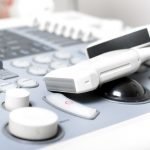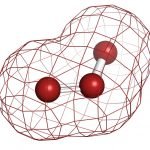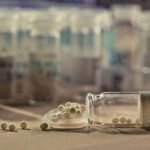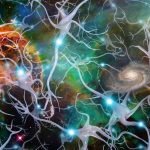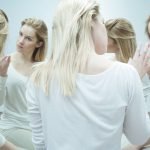Interacting with Our Hands May Increase Problem Solving Ability; Help with Math Anxiety
Two psychologists from Kingston University in London, Gaelle Vallee-tourangeau, and Frederic Vallee-Tourangeau are questioning the long standing assumption that thinking takes place exclusively in the head. In a recent study, they demonstrated a profound increase in problem solving ability when subjects were given tactile models to aid in solution finding, compared to subjects who were given electronic tablets to aid with the same problem.
They invited 50 participants to try and solve the problem of how to put 17 animals into four pens in such a way that there were an odd number of animals in each one. One group was given physical models, and the other electronic tablets. The group which was given models were much more likely to solve the problem, which involves an overlapping pen(1).
In Professor Gaëlle Vallée-Tourangeau’s words: “When you write or draw, the action itself makes you think differently. In cognitive psychology [we] are trained to see the mind as a computer, but we’ve found that people don’t think that way in the real world. If you give them something to interact with they think in a different way.”
Regardless of cognitive ability, there may be some types of problems which necessitate physical interaction with one’s environment in order to solve them; these may be problems that are simply not able to be solved by paper and pen methods. This research opens up the question of whether certain types of problems necessitate group interaction as well, ie social problems involving certain civic planning elements, or even health care issues. There is a predominant idea that problems should be solvable by an individual if they are “smart” enough, and much energy is spent finding these individuals. The method of problem-solving very well could be the larger issue at hand.
Further research by this team questions whether math anxiety, a feeling of tension, apprehension, or fear that interferes with math performance(2) could be overcome by a more hands-on approach to mathematical problem solving. These types of studies may also support the use of creative therapies such as art, music, and dance in the treatment of various neural processing disorders (Traumatic brain injuries, depression, anxiety, substance abuse, Alzheimer’s).
- Vallée-Tourangeau, F, et al. Insight with hands and things. Acta Psychol (Amst). 2016 Oct;170:195-205. doi: 10.1016/j.actpsy.2016.08.006. Epub 2016 Aug 26.
- Ashcraft, M.H. (2002).Math anxiety: Personal, educational, and cognitive consequences. Current Directions in Psychological Science, 11: 181–185, doi:10.1111/1467-8721.00196
 Node Smith, associate editor for NDNR, is a fifth year naturopathic medical student at NUNM, where he has been instrumental in maintaining a firm connection to the philosophy and heritage of naturopathic medicine amongst the next generation of docs. He helped found the first multi-generational experiential retreat, which brings elders, alumni, and students together for a weekend campout where naturopathic medicine and medical philosophy are experienced in nature. Three years ago he helped found the non-profit, Association for Naturopathic ReVitalization (ANR), for which he serves as the board chairman. ANR has a mission to inspire health practitioners to embody the naturopathic principles through experiential education. Node also has a firm belief that the next era of naturopathic medicine will see a resurgence of in-patient facilities which use fasting, earthing, hydrotherapy and homeopathy to bring people back from chronic diseases of modern living; he is involved in numerous conversations and projects to bring about this vision.
Node Smith, associate editor for NDNR, is a fifth year naturopathic medical student at NUNM, where he has been instrumental in maintaining a firm connection to the philosophy and heritage of naturopathic medicine amongst the next generation of docs. He helped found the first multi-generational experiential retreat, which brings elders, alumni, and students together for a weekend campout where naturopathic medicine and medical philosophy are experienced in nature. Three years ago he helped found the non-profit, Association for Naturopathic ReVitalization (ANR), for which he serves as the board chairman. ANR has a mission to inspire health practitioners to embody the naturopathic principles through experiential education. Node also has a firm belief that the next era of naturopathic medicine will see a resurgence of in-patient facilities which use fasting, earthing, hydrotherapy and homeopathy to bring people back from chronic diseases of modern living; he is involved in numerous conversations and projects to bring about this vision.




